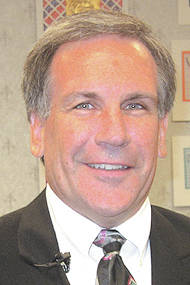
I began my career in teaching immediately after graduating from Wittenberg University in 1976, which means that for the last 42 years I have been working with children in a school setting. When I am asked how kids have changed during these last four decades, my answer is always the same. They have not changed much at all. But, the adults around them certainly have.
The children of today need the same things those of us who grew up in the 1950s and 1960s needed. They need the adults in their lives to provide them with structure and discipline and to hold them accountable for the choices they make and the actions they take. They need the people charged with raising them to love and protect them, and they deserve to be cared for physically, stimulated mentally, developed socially, and nurtured emotionally. They need parents who teach them right from wrong as well as how to navigate the difficulties life throws at all of us. In other words, nothing much has changed.
Because the children of today are exposed to substantially more than we were exposed to, people often mistakenly assume that they are more savvy and capable of handling whatever they see and hear far better than previous generations could. Kids as young as 7, 8, and 9 years old are handed electronic devices that provide them with access to the outside world with all the decadence that it contains as if they are capable of handling whatever they see or hear. But, they’re not, because they’re still just kids; just like we were.
Another big change that has occurred during my career is parents’ reactions to children’s missteps. If you ask people my age what the rule in their household was if they got into trouble at school the vast majority of them will tell you that whatever consequence they received at school were duplicated at home (or worse). There were no debates, inquisitions, or compromises. That’s just the way it was.
That is no longer true. As often as not, if a child gets into trouble at school (or on the streets, police officers will tell you), the first question asked is what happened to “make” the child act a certain way or who “wronged” him or her, “because my child would never act that way unprovoked.” It is as likely as not that the party being accused of “causing” the inappropriate behavior will be a teacher, principal, bus driver, or another school employee as it is a child peer(s). Too often the finger gets pointed at someone other than the culprit. Kids know when they are offered a free pass, and they take advantage of it whenever possible.
I have always been intrigued when, in my role as a school administrator, I would meet with the parent(s) of a child who had misbehaved in front of a dozen adult witnesses, but the parents weren’t much interested in that fact. They would indignantly claim that their child told them they didn’t commit whatever act they were accused of committing, and they believed their child because “he/she would never lie to me.” Uh, yeah they would if it meant keeping their hide out of the fire. We see examples in the news every day of adults lying to avoid consequences for their actions. Why would we believe children would behave any differently? It doesn’t mean they’re bad. It only means they are human.
I can honestly say that there was never an instance when I got into trouble in my youth when my parents were interested in my version of the events. They were wise enough to realize that whatever my story was going to be would put me in the best possible light, because that’s what people do. Today, more than a half century later, I am no worse for the wear because of their philosophy. My psyche was not destroyed. I knew my parents loved me, as I did them, and life turned out just fine. But, the standards were very clear as to who was establishing and enforcing the rules. And, it wasn’t me. That is too often no longer the case.
At some point during my lifetime, behavioral “experts” decided that hurting a child’s feelings, or backside, for that matter, caused irreparable harm to their ego. Parents were implored to explore their child’s feelings to try to understand the reason (aka, excuse) for the misbehavior instead of setting standards and holding him or her accountable to them without reservation.
Despite what these “experts” told us, growing up naively like we did with the understanding that adults carried more power than we did and with a little healthy fear of doing wrong didn’t destroy us. Not receiving participation trophies didn’t shatter our confidence. It was not until the “experts” convinced us how misguided our parents were that childhood violence reached catastrophic levels and depression diagnoses in children skyrocketed. Perhaps, despite what the “experts” proclaimed, their way wasn’t better.
And, maybe our parents weren’t so stupid after all.
Tom Dunn is the former superintendent of the Miami County Educational Service Center.


